South Africa's truly ethical safaris
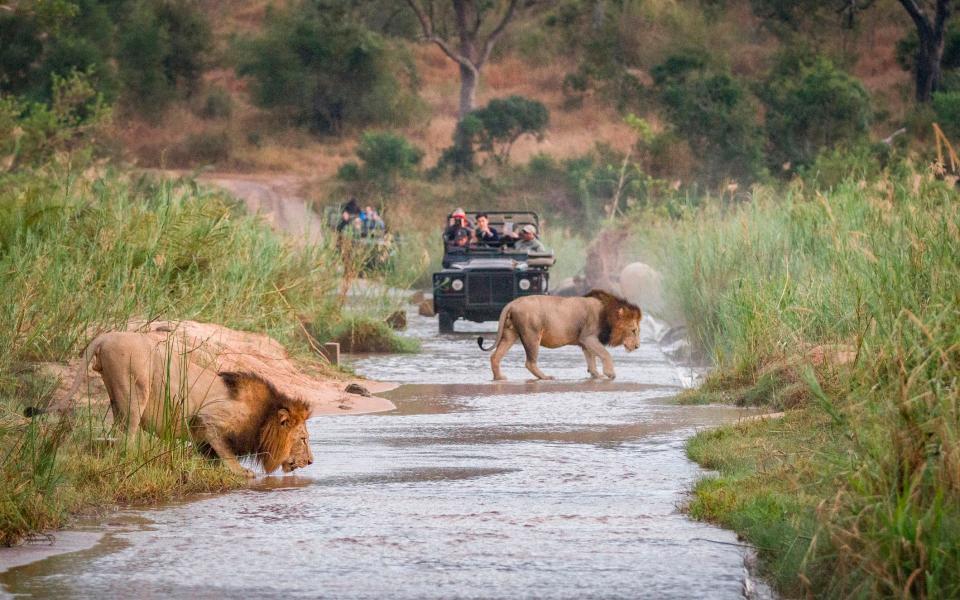
Richard Madden recommends five ethical lodges in South Africa that are committed to sustainability and conservation
Sir David Attenborough has made one thing absolutely clear. In the face of the mass extinction of wildlife that the world is now facing, the solution is in the hands of each one of us. “If we make the right decisions at this critical moment,” he declared in his recent BBC documentary Extinction: The Facts, “we can safeguard our planet’s ecosystem.”
And for anyone who cares about the animals of the African bush, safari tourism is critical to their survival. Without the money the safari industry generates to fund conservation projects and anti-poaching units, the African bush will be virtually denuded of the Big Five within a decade. And now more than ever in the face of the crippling effects of the pandemic, guests want to know that the safari lodges in which they stay are doing everything possible to support conservation initiatives and operate sustainably.
So what are the key pointers to look out for when choosing a safari lodge?
It should go without saying that all such properties are interested in local conservation initiatives and funding anti-poaching projects, but it’s worthwhile asking the lodge or safari operator what percentage of your money is ploughed back into such programmes.
While sustainable practices such as generating solar energy, phasing out plastic bottles, sourcing food locally, and observing environmentally sensitive building codes are all becoming more widespread, partnerships with local communities through employment, education and healthcare are perhaps now the most important long-term projects.
It is these initiatives that tighten the bond between local people and the many endangered species with which they share the land, while at the same time giving them the means to prosper alongside their animals. South Africa is one of the most biodiverse countries on earth, and the lodges here are committed to ensuring that the term “ecotourism” is founded on best practice and isn’t just a convenient marketing slogan.
1. !Xaus Lodge
Owned and run by the Khomani San and Mier people, !Xaus Lodge (pronounced “kaus” and meaning “heart” in the local language) is located in the Kgalagadi Transfrontier Park in an isolated corner of the Kalahari Desert on the border with Botswana. Its 12 reed-thatch chalets are designed and built by the San in traditional style overlooking a giant heart-shaped salt pan.
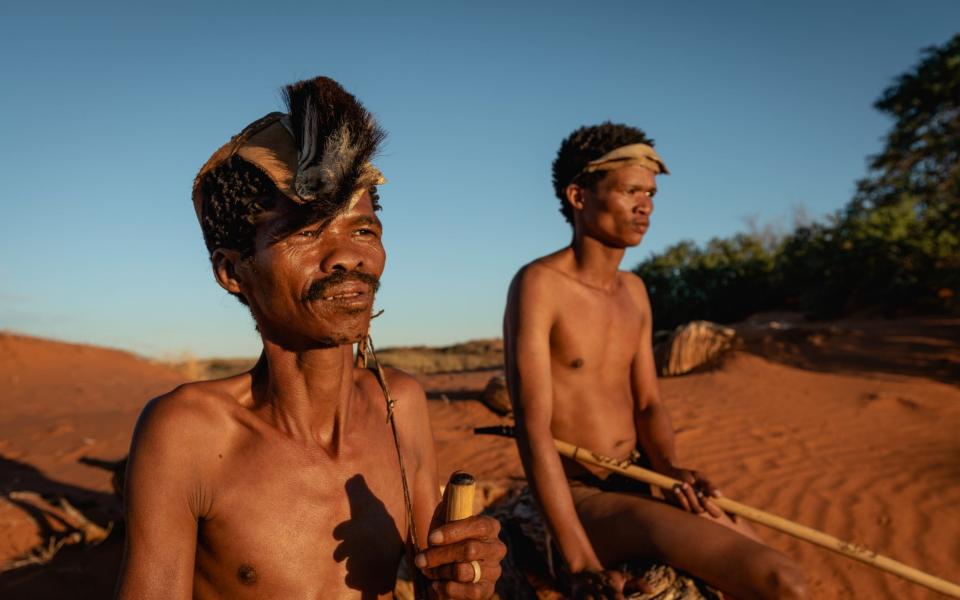
As well as bush walks, plus drives and bush skills activities with the San rangers, the lodge is famous for its stargazing under some of the darkest skies in the world. The lodge is run according to the principles of ubuntu (goodwill), partnership, and sustainability. It was the winner of the Most Compelling Sustainability Story at the World Travel Market Africa Awards 2020. There are no mobile phone, Wi-Fi or TV signals, only a satellite phone for emergencies.
A chalet (sleeping two adults) for one night costs from £463 in January 2021, travel restrictions permitting by then. xauslodge.co.za
2. &Beyond Phinda Rock Lodge
The Phinda Reserve is located in the rugged KwaZulu-Natal region of eastern South Africa on the Indian Ocean’s Elephant Coast. The lodge consists of six “cottages” built in traditional African style of contoured stone and thatch with wooden interiors, a plunge pool, and a viewing deck overlooking the reserve. Conservation is top priority and guests can join both an elephant collaring project as well as the Pangolin Conservation Experience, a ground-breaking initiative re-establishing Temminck’s ground pangolin (the world’s most trafficked mammal) in a region where it had gone locally extinct.
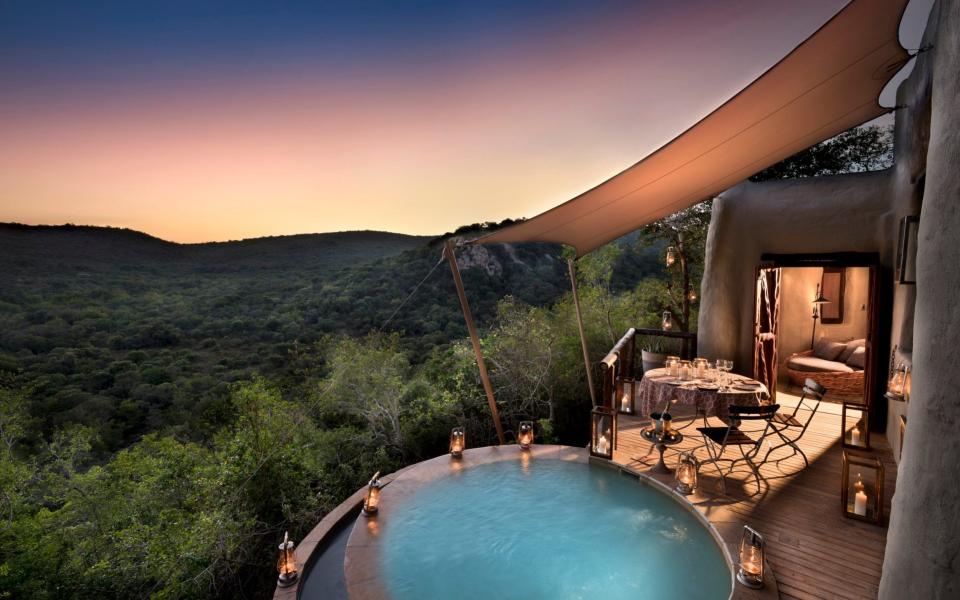
The lodge supports community development, with guests able to visit a local school, a clinic, and a craft market. The lodge also uses energy-efficient air conditioners with LED lights and timers on pumps and water heaters, while all plastic water bottles have been replaced with reusable glass.
A two-night stay at the lodge costs from £1,060pp. andbeyond.com
Read the full review of &Beyond Phinda Rock Lodge
3. Pondoro Game Lodge
Set on the banks of the Olifants River in the Balule Private Reserve to the west of the Kruger National Park, the thatched cottages and communal spaces at Pondoro have been constructed with an emphasis on traditional African design and natural materials.
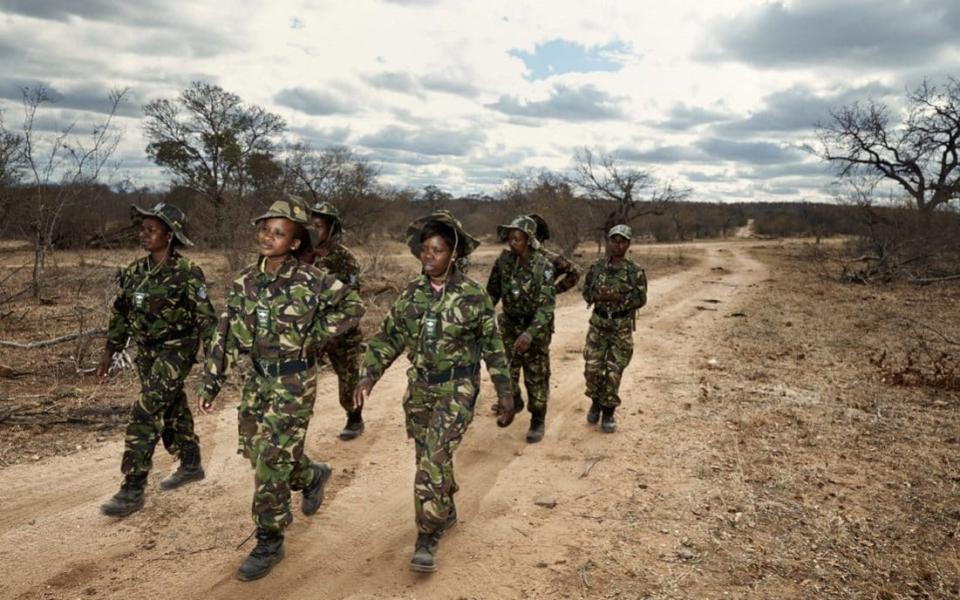
Pondoro is famous for its pioneering partnership with the Black Mamba Anti-Poaching Unit, the first all-female anti-poaching unit in the world, in an area where rhino and bush-meat poaching are problems. The Mambas search for and destroy poachers’ camps, wire snares, and bush-meat kitchens on a daily basis. Regular tours are held for guests in which they meet members of the Black Mamba Unit and learn about their work. The Mambas also run an environmental awareness program at schools aiming to create an environmentally literate community.
A two-night stay in February 2021 costs from £992 per person. pondoro.co.za; blackmambas.org
4. Singita Lebombo, Kruger National Park
Located in a private concession of the Kruger National Park close to the Mozambique border, Lebombo combines glass and natural materials with elegant minimalist design to complement the wilderness setting. Communal areas extend seamlessly into rocky outcrops dotted with giant euphorbia trees. Conservation is built into the DNA of Singita, which operates 15 lodges and camps across six regions of Africa. Its three watchwords are Community, Biodiversity and Sustainability.
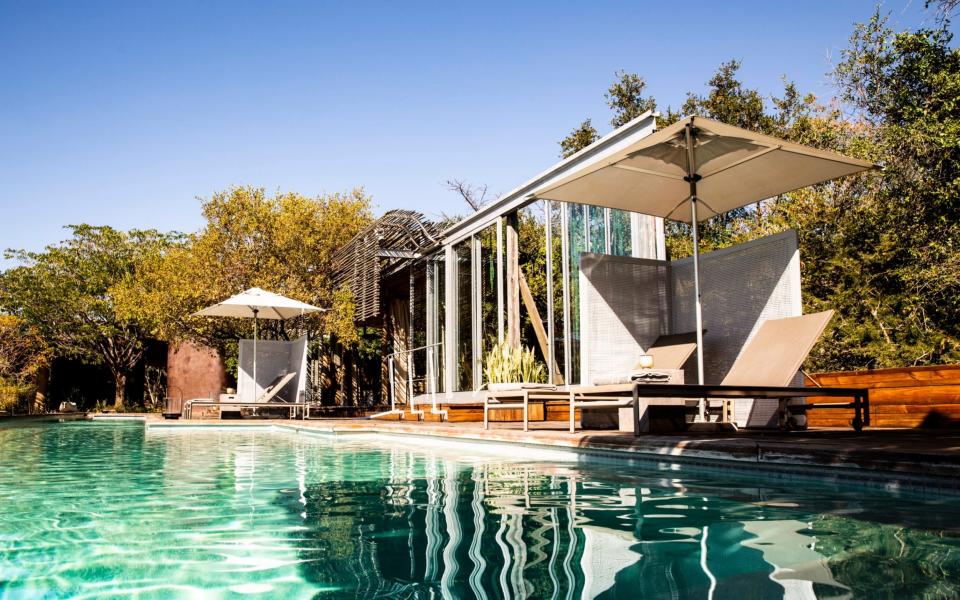
The Singita Lowveld Trust is a 24-hour anti-poaching operation using cutting-edge technology, while its culinary school helps people from local communities train as high calibre chefs. Singita is also signed up to the One Planet Living framework, which helps organisations implement sustainable tourism. singita.com
Read the full review of Singita Lebombo
5. The Motse, Tswalu Kalahari Reserve
Redesigned in 2019, The Motse is a secluded “village” of nine legae dwellings on a private reserve in the green Kalahari in the far north of the country. Beds are orientated to maximise the views and the bathrooms have been created with private gardens and outdoor showers open to the night skies.

Owned by the Oppenheimer family since 1998, the reserve was founded on the principle of restoring the surrounding ecosystem and its biodiversity after years of cattle farming and hunting, and promoting ecological research. Sustainability, community support, and the restoration of the green Kalahari’s natural ecological processes are prioritised and supported through ecotourism and the Tswalu Foundation which runs a local school and healthcare centre.
A three-nights-for-two promotion is available from Nov 1 2020-Feb 28 2021. Prices start at £1,300pp per night. tswalu.com

 Yahoo News
Yahoo News 